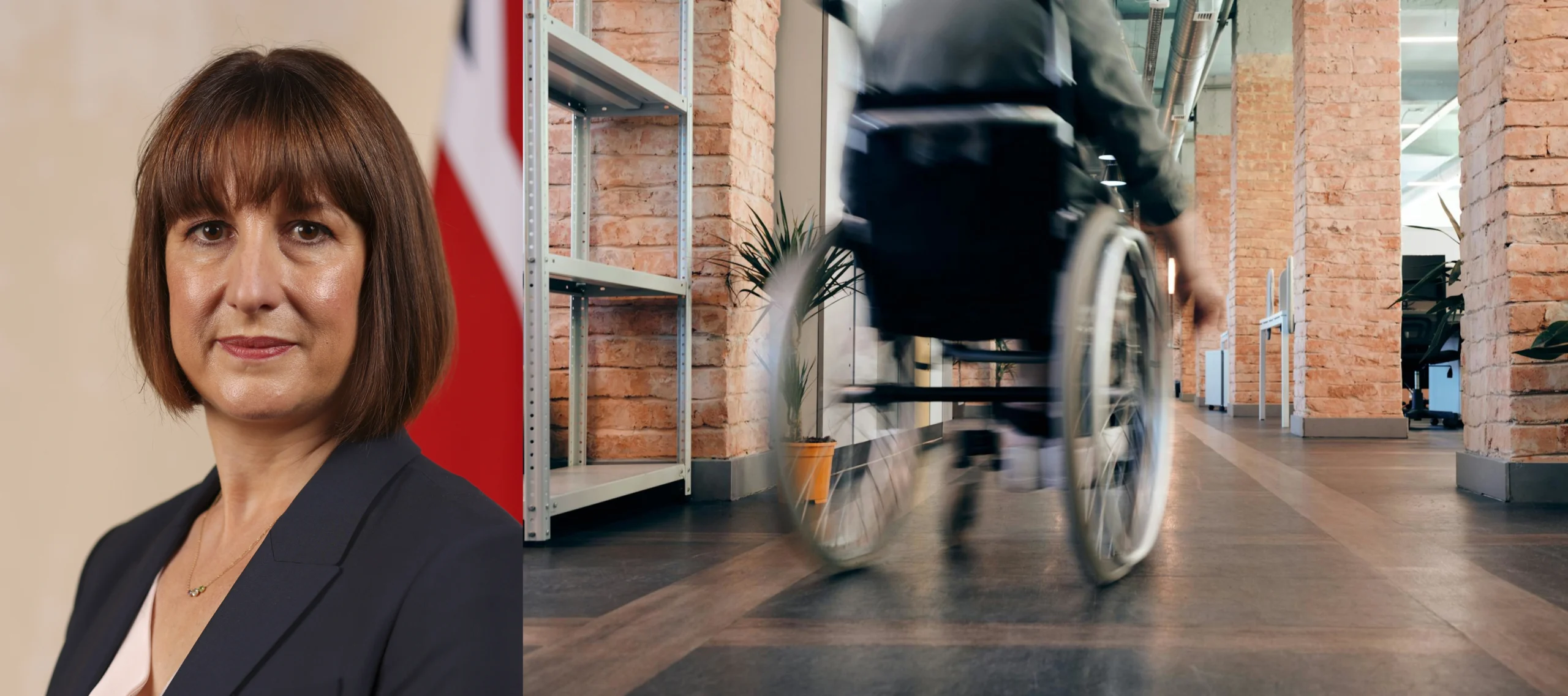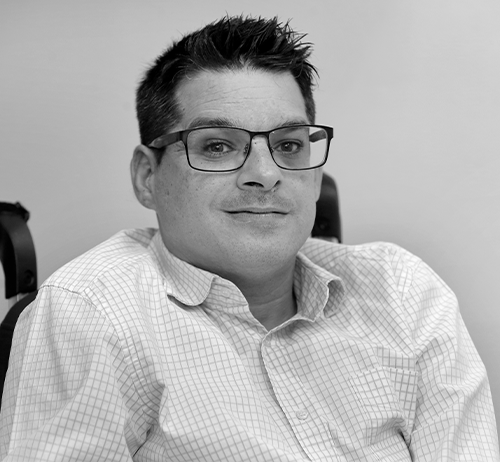Rachel Reeves’ budget was sold as ‘fair’ — but disabled people will pay the price

Matthew Kayne
- Published
- Opinion & Analysis

UK Chancellor Rachel Reeves’ autumn Budget outlines stability on paper, but its measures leave disabled people facing a future of weaker support, tighter assessments and widening gaps in care, warns our Disability Rights and Inclusion correspondent, Matthew Kayne
Yesterday’s budget was billed as a blueprint for “stability, fairness and growth”, but for millions of disabled people like me, it landed with a familiar message: we are expected to carry the burden of a financial crisis we didn’t create, through cuts we can’t absorb.
Budgets don’t just shape the economy — they shape lives. They determine whether disabled people can heat our homes, access care, travel, work, or simply exist with dignity. And this year’s Budget, for all its polished promises, leaves disabled people exposed, overlooked and quietly sacrificed.
Yes, the Chancellor spoke about welfare “reform,” targeted support and new efficiency measures. But behind the polished language is a harsh truth: disability support is being squeezed — again.
Forecasts show disability-related benefits will fall by over £4 billion a year by 2029. That isn’t “reform.” It’s erosion — slow enough to dodge headlines, sharp enough to hurt.
For disabled people, this means tougher assessments, less financial stability, and more pressure on those living one crisis away from collapse.
Politicians must remember that benefits aren’t luxuries. They are survival, and new injections of money simply don’t match the scale of need. Disabled people can expect more delays, reduced care hours, staff shortages and unsafe levels of support.
As someone who relies on care to live safely, these gaps aren’t technicalities — they are daily realities.
Accessibility barely featured. Once again we saw no commitments to accessible trains and buses, adapted housing, a functioning national wheelchair and equipment system, and universal access standards.
Mobility equipment and adaptations aren’t optional extras. They are freedom.
I live with cerebral palsy. Delays in wheelchair servicing have caused pain. Care gaps have left me struggling to function. Policies presented as “efficiencies” become suffering for people like me.
This budget means more uncertainty, more instability, and more fear for disabled people whose needs are already pushed to the margins.
This Budget prioritised image over impact — and disabled people will feel the consequences first.
Fairness must start with:
– Properly funded social care
– Reliable mobility equipment
– Benefits that match real costs
– National accessibility
– Respect for disabled lives
– Without these, “fairness” is just branding.
Disabled people deserve more than survival economics. We deserve to live, thrive, contribute, and be valued.

Matthew Kayne is broadcaster, political campaigner and disability rights advocate who has turned personal challenges into platforms for change. He is the founder and owner of Sugar Kayne Radio, an online station dedicated to uplifting music and meaningful conversations, and the leader of a national petition calling for reform of the UK’s wheelchair service. Living with cerebral palsy and a survivor of bladder cancer, Matthew channels his lived experience into advocacy, broadcasting, and songwriting and uses Ai to assist with written communication as it helps him work around physical barriers to typing and text production. His long-term ambition is to bring this experience into politics as an MP, championing disability rights, healthcare access, and workplace inclusion.
READ MORE: ‘The fight for independence disabled people shouldn’t have to wage‘. After 15 years in a care home, our Disability Rights and Workplace Inclusion Correspondent, Matthew Kayne, knows what it feels like to have even the smallest choices taken away. From daily routines dictated by rotas to support determined by budgets, he says disabled people are too often denied dignity, and are forced to fight for the freedom most take for granted.
Do you have news to share or expertise to contribute? The European welcomes insights from business leaders and sector specialists. Get in touch with our editorial team to find out more.
Main image: Lauren Hurley / No 10 Downing Street – Number 10 Flickr page, OGL /Marcus Aurelius (Pexels)
RECENT ARTICLES
-
 The era of easy markets is ending — here are the risks investors can no longer ignore
The era of easy markets is ending — here are the risks investors can no longer ignore -
 Is testosterone the new performance hack for executives?
Is testosterone the new performance hack for executives? -
 Can we regulate reality? AI, sovereignty and the battle over what counts as real
Can we regulate reality? AI, sovereignty and the battle over what counts as real -
 NATO gears up for conflict as transatlantic strains grow
NATO gears up for conflict as transatlantic strains grow -
 Facial recognition is leaving the US border — and we should be concerned
Facial recognition is leaving the US border — and we should be concerned -
 Wheelchair design is stuck in the past — and disabled people are paying the price
Wheelchair design is stuck in the past — and disabled people are paying the price -
 Why Europe still needs America
Why Europe still needs America -
 Why Europe’s finance apps must start borrowing from each other’s playbooks
Why Europe’s finance apps must start borrowing from each other’s playbooks -
 Why universities must set clear rules for AI use before trust in academia erodes
Why universities must set clear rules for AI use before trust in academia erodes -
 The lucky leader: six lessons on why fortune favours some and fails others
The lucky leader: six lessons on why fortune favours some and fails others -
 Reckon AI has cracked thinking? Think again
Reckon AI has cracked thinking? Think again -
 The new 10 year National Cancer Plan: fewer measures, more heart?
The new 10 year National Cancer Plan: fewer measures, more heart? -
 The Reese Witherspoon effect: how celebrity book clubs are rewriting the rules of publishing
The Reese Witherspoon effect: how celebrity book clubs are rewriting the rules of publishing -
 The legality of tax planning in an age of moral outrage
The legality of tax planning in an age of moral outrage -
 The limits of good intentions in public policy
The limits of good intentions in public policy -
 Are favouritism and fear holding back Germany’s rearmament?
Are favouritism and fear holding back Germany’s rearmament? -
 What bestseller lists really tell us — and why they shouldn’t be the only measure of a book’s worth
What bestseller lists really tell us — and why they shouldn’t be the only measure of a book’s worth -
 Why mere survival is no longer enough for children with brain tumours
Why mere survival is no longer enough for children with brain tumours -
 What Germany’s Energiewende teaches Europe about power, risk and reality
What Germany’s Energiewende teaches Europe about power, risk and reality -
 What the Monroe Doctrine actually said — and why Trump is invoking it now
What the Monroe Doctrine actually said — and why Trump is invoking it now -
 Love with responsibility: rethinking supply chains this Valentine’s Day
Love with responsibility: rethinking supply chains this Valentine’s Day -
 Why the India–EU trade deal matters far beyond diplomacy
Why the India–EU trade deal matters far beyond diplomacy -
 Why the countryside is far safer than we think - and why apex predators belong in it
Why the countryside is far safer than we think - and why apex predators belong in it -
 What if he falls?
What if he falls? -
 Trump reminds Davos that talk still runs the world
Trump reminds Davos that talk still runs the world


























